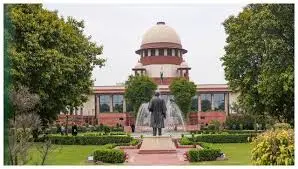After SC red-flagged custodial death in MP’s Guna, report finds most arrests there from oppressed castes, tribal communities

The custodial death of Deva Pardhi, a 25-year-old tribal man from the Pardhi community in Madhya Pradesh’s Guna district, has ignited nationwide outrage. Arrested on his wedding day in connection with a dacoity case, Deva died shortly after in police custody. While police claimed he suffered a heart attack, his family and human rights activists strongly believe he was tortured. The Supreme Court of India has taken serious note of this case and ordered a Central Bureau of Investigation (CBI) probe to uncover the truth.
Custodial Death Raises Serious Questions
Deva Pardhi’s death has cast a harsh light on the systemic issues of police conduct in Madhya Pradesh. The Supreme Court intervened, demanding accountability and transparency. It instructed the state government to file charges against those responsible within 90 days. This case highlights how police custody can turn deadly, especially for marginalized communities.
Moreover, the Court criticized the local administration’s hesitation to take action against police officers. This reluctance raises concerns about possible biases within the system. It also reflects a wider problem where victims from oppressed communities do not receive fair treatment.
Disproportionate Arrests of Marginalized Communities
A recent report by the Criminal Justice and Police Accountability Project reveals a disturbing pattern in Madhya Pradesh. Between 2018 and 2020, over 64% of those arrested under the state’s Excise Act belonged to Scheduled Castes, Scheduled Tribes, and nomadic tribes. This statistic reveals a systemic bias that disproportionately targets vulnerable groups.
The Excise Act, which regulates alcohol consumption, has been misused to criminalize traditional tribal practices. Many tribal communities consume mahua, a customary alcoholic drink. Police often arrest them under this law, ignoring their cultural rights. Thus, law enforcement turns cultural habits into legal offenses, further marginalizing these communities.
High Rate of Atrocities Against Dalits and Tribals
Madhya Pradesh also records a high number of atrocities against Dalits and tribal populations. In 2022 alone, the state accounted for nearly 15% of all cases registered under the Scheduled Castes and Scheduled Tribes (Prevention of Atrocities) Act nationwide. This alarming figure highlights how caste-based violence and discrimination remain deeply rooted in the region.
These atrocities take various forms, including physical violence, social exclusion, economic deprivation, and systemic discrimination. The police and local authorities often fail to protect these vulnerable groups. Instead, they sometimes become part of the problem by perpetrating or ignoring such abuses.
The Human Cost of Police Bias
The impact of disproportionate arrests and custodial abuse is profound. Families face social stigma, loss of income, and psychological trauma. The fear of torture and mistreatment in custody creates a climate of distrust toward law enforcement.
Many tribal and Dalit communities already struggle with poverty, illiteracy, and limited access to justice. When the police target them unfairly, it only worsens their situation. Deva Pardhi’s death symbolizes the daily risks these communities face when interacting with the justice system.
Supreme Court’s Push for Accountability and Reform
The Supreme Court’s swift response in Deva’s case sends a powerful message. It signals zero tolerance for custodial deaths and police misconduct. The Court’s order for an independent CBI investigation underscores the need for transparency and accountability.
However, this case should also serve as a wake-up call for broader reforms. Madhya Pradesh’s police force requires better training on human rights and caste sensitivity. Moreover, mechanisms for oversight and accountability must improve to prevent abuses.
In addition, the Excise Act needs review to ensure it does not unfairly criminalize cultural practices. Authorities should respect tribal customs instead of punishing them under the law.
Building Trust Between Police and Marginalized Communities
Activists stress the importance of police sensitization on caste and tribal issues. Reducing prejudice within law enforcement can help rebuild trust with marginalized groups. Such trust is essential for effective policing and social harmony.
Community engagement programs and dialogue between police and local groups could pave the way for better understanding. When police officers see the people they serve as equals, discrimination can decrease.
The Road Ahead: Justice and Equality
Deva Pardhi’s custodial death is a painful reminder of the discrimination that oppressed communities face daily. The Supreme Court’s intervention brings hope for justice in this case. Yet, real progress demands structural changes to the policing and justice systems.
The Madhya Pradesh government must act swiftly to investigate Deva’s death thoroughly. Officials responsible for any wrongdoing should face legal consequences. Beyond this, comprehensive reforms must prevent future abuses.
For the Pardhi community and others like them, this struggle goes beyond justice for one individual. It represents a fight for dignity, respect, and equal rights. India’s commitment to equality will be tested by how it protects its most vulnerable citizens.
Conclusion
The custodial death of Deva Pardhi has highlighted critical flaws in Madhya Pradesh’s policing system. It exposed the disproportionate arrests of oppressed castes and tribal communities and the systemic discrimination they face. The Supreme Court’s active involvement offers a chance to demand accountability and push reforms.
Ultimately, protecting human rights and ensuring equal treatment under the law must be national priorities. Only then can India build a truly just society where every citizen, regardless of caste or community, can live with dignity and security.






